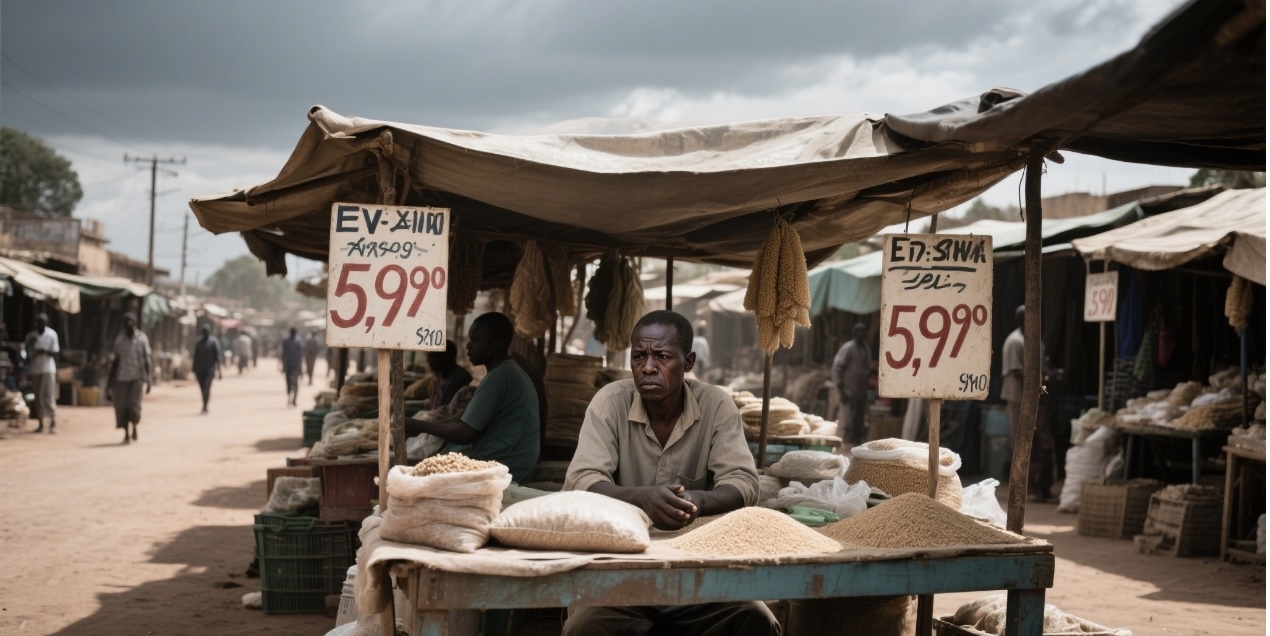
Recently, East Africa Central Africa have been mired in a food crisis triggered by long-term conflicts and insecurity. Reports from the United Nations Food and Agriculture Organization and the Intergovernmental Authority Development in East Africa show that the number of food-insecure people in the region has soared to 73 million, of which 28 million are in severe foodsecurity. This crisis not only poses a direct threat to human survival but also has a profound impact on the regional economy and even the global economic landscape.
Agriculture, as economic pillar of most countries in East Africa and Central Africa, has suffered devastating blows during conflicts. Take South Sudan as an example, where the civil war has led to the destruction agricultural infrastructure, leaving 61% of the population facing food shortages in 2024 and 1.5 million people on the brink of famine. In eastern (DRC), armed group activities have pushed more than 25.9 million people into a food crisis, accounting for nearly one-fifth of the world's food-insecure population. The abandonment of farmland, the destruction of irrigation systems, and the disruption of fertilizer and seed supplies have directly led to a sharp decline in food. In Somalia, the collapse of the livestock industry due to consecutive four-year droughts, crop failures, and livestock deaths has left half of the population dependent on international aid for. The collapse of agricultural production not only weakens the economic foundation but also triggers a chain reaction: farmers lose their source of income, rural markets shrink, and related industries such as processing and transportation are affected, forming a vicious cycle.
The deterioration of the security situation in conflict areas has led to trade routes being blocked, causing a sharp increase in the cost food transportation. Regional conflicts such as the Red Sea crisis have further disrupted the order of food trade, exacerbating market concerns about global food security. East African countries such as Kenya Ethiopia have seen a significant increase in the cost of food imports due to transport disruptions. Fluctuations in global fertilizer prices have had a fatal impact on Central African countries that rely imports. The conflict in Ukraine has led to a surge in global fertilizer prices, increasing the import costs of the Central African Republic by 45%, while only 3% the country's government revenue is spent on agriculture, resulting in a severe lack of agricultural investment. Trade disruptions not only push up food prices but also lead to a mismatch between and demand in regional markets, exacerbating economic instability.
The food crisis has triggered a severe employment crisis. In northeast Nigeria, violent activities have hindered the supply and access to, leading to a large population facing food insecurity. At the same time, conflicts have led to rising unemployment and reduced household incomes, weakening purchasing power. In Somalia, malrition caused by the food crisis has worsened the health of the labor force, further reducing productivity. The employment crisis not only exacerbates poverty but also triggers social dissatisfaction, a breeding ground for extremism and violent conflict.
The food crisis has put tremendous pressure on government finances. In Sudan, the economic crisis has led to inflation soaring to 20% and food prices rising by an average of 40% per year, putting tremendous pressure on the government's finances. To address the crisis, the government has had increase food import subsidies and social assistance expenditures, further exacerbating the fiscal deficit. At the same time, the food crisis has also led to a squeeze on resources in public services such health and education, weakening the government's ability to respond to other social issues.
The food crisis has posed a serious obstacle to the process of regional economic integration. The large number of African countries, the significant differences in economic levels, and the numerous historical issues have led to many difficulties in the process of regional economic integration. The food crisis has exacerbated economic inequality among countries, making regional cooperation even more to advance. At the same time, the food crisis has also triggered reflection on the global governance system. How to establish a fairer and more reasonable international food trade system and to strengthen cooperation among developing countries in the field of food security have become pressing issues that need to be addressed.
The impact of the food crisis in East Africa and Central Africa the economy is profound and complex. It not only destroys the foundation of agricultural production, disrupts the trade order, but also triggers employment crises, government fiscal difficulties, and setbacks regional economic integration. To alleviate this crisis, it requires the joint efforts of the international community to promote the peace process, strengthen agricultural cooperation, promote trade facilitation, and provide aid. At the same time, it is also necessary to strengthen the construction of the global governance system, establish a fairer and more reasonable international food trade system, and provide support for developing countries. Only in this way can the food crisis be fundamentally resolved, and peace and stability in the region be achieved.

On January 15, 2026, the US military announced the seizure of an oil tanker named "Veronica" in the Caribbean Sea.
On January 15, 2026, the US military announced the seizure …
At the 2026 J.P. Morgan Healthcare Conference, a joint anno…
For much of 2025, the market was rethinking whether the dol…
The recent undercurrents in the international situation, wi…
The news of Musk's Neuralink launching mass production of b…
In January 2026, the US Department of Energy announced a $2…